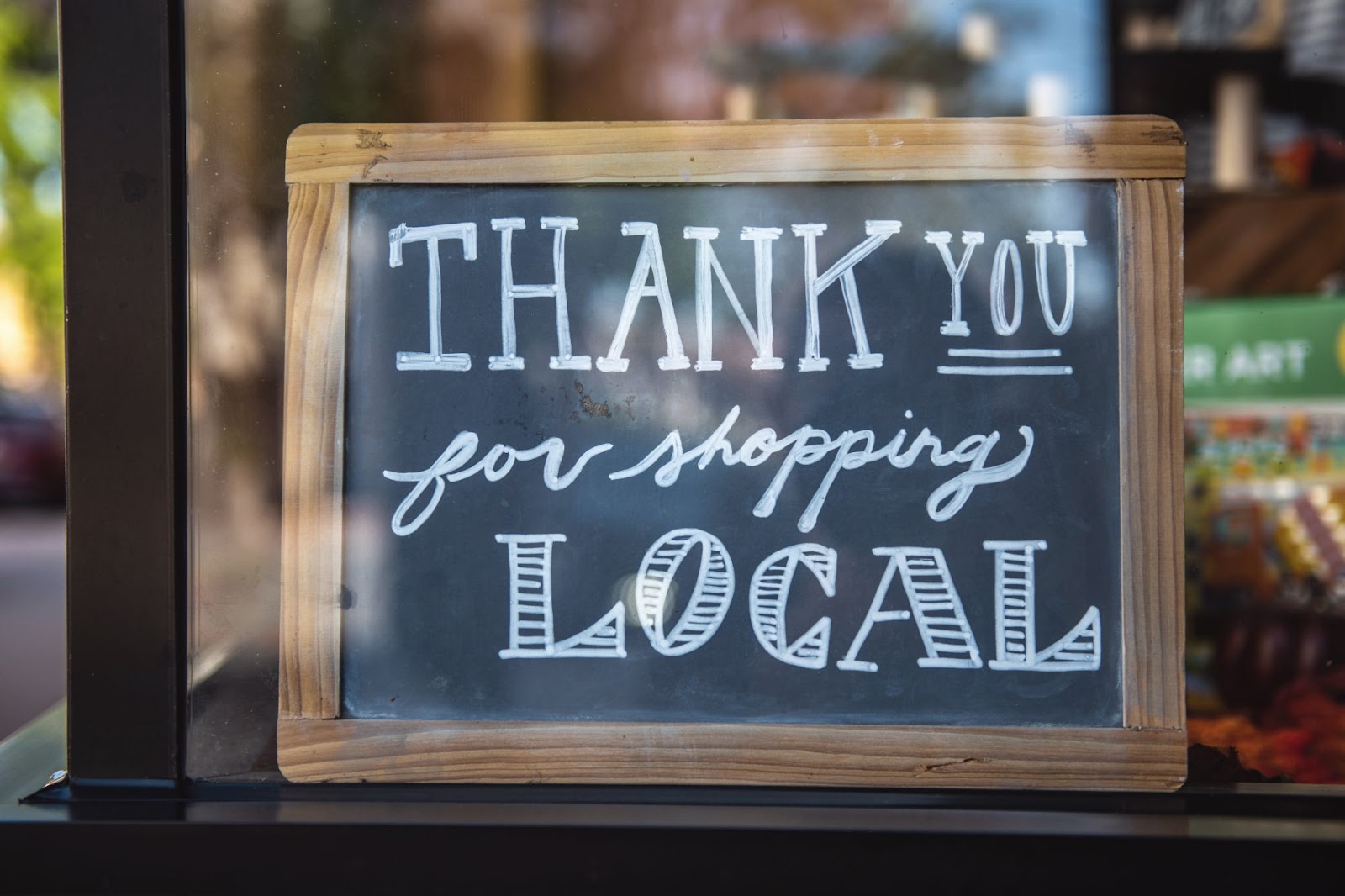Your Simple Guide to Conscious Holiday Shopping

From the twinkling lights on Christmas trees to the cheerful holiday music, the signs of the season are everywhere. As excited shoppers we make gift lists, and of course retailers kick their marketing efforts up a notch or two to reel us in.
As the advertisements of holiday sales and discounts hit your inbox, you respond by clicking on link after link. Filling your shopping cart to the brim, you rush to take advantage of the sales while getting gifts for everyone on your list.
If you’re like most Europeans, you’ll plan to spend approximately EU460 on holiday shopping this year.
If you’re planning to spend the average amount of cash on your holiday, why not consider making more of an impact through conscious holiday shopping?
Tips for Conscious Holiday Shopping
It seems that phrases like “sustainability”, “social responsibility”, and “conscious consumerism” are the new buzzwords on everyone’s lips these days. The call to consumers to shop local and support small businesses is heard throughout the holiday season.
But what does it mean to be socially conscious when it comes to holiday shopping? The good news is that there are a few simple things you can do to be a more conscious shopper.
We’ve put together a simple guide to help you navigate the ins and outs of shopping consciously. From shop local to fairtrade labels and organic certifications, we’ll walk you through what to look for as you become a more conscious consumer.
- BUY LOCAL, SHOP SMALL®

One of the easiest ways to practice conscious holiday shopping is to look in your own backyard. The slogans “buy local” and “support small business” may come to mind. As consumers we should support local retailers and restaurants.
When you shop locally, you make a conscious decision to support your friends and neighbors while reducing the impact on the environment. And in return for shopping close to home, you’ll find unique, quality handmade goods that are sourced locally and farmed responsibly.
Instead of heading to the mall packed with frenzied shoppers, why not visit local artisan boutiques? You’ll find incredible, handmade gifts from pottery and art to jewelry and hand-knitted items. Imagine the look on your loved one’s face when they open a unique, hand-made gift you picked out just for them! You’ll not only delight the receivers of your thoughtful gifts, but you’ll also help local vendors support their families.
- ARE YOUR FAVORITE BRANDS SOCIALLY CONSCIOUS?
With every swipe of your credit card this holiday season, you have an opportunity to shop consciously. Think about why you choose to buy certain brands. In other words, what’s your motivation to buy from your favorite companies?
For instance, do you buy coffee from your local coffee shop because you know it’s Fairtrade certified, or do you buy it to show off a certain logo? With a simple shift in your shopping perspective, you can use your purchasing power to help make a difference in the world.
Many brands have aligned themselves with different socially conscious causes. From supporting educational programs to building community gardens, companies look for ways they can give back to their communities.
As a consumer, you’re more likely to give your trust and loyalty to purpose-driven brands. So much so that you’re willing to pay a few euros more if you know your purchase is helping a cause you align with. Brand loyalty is partially based on how well the brand aligns with your personal beliefs and ethical principles.
This holiday season, take the time to look for brands that are supporting social good. Ask yourself what social or environmental causes are most important to you, then seek out brands that align with your beliefs.
- LOOK FOR ENVIRONMENTALLY CONSCIOUS CERTIFICATIONS
A great way to become a more environmentally conscious shopper is to look for seals and certifications on the packaging. These might include labels like Organic certifications like Lacon, Ecocert, EU-Bio Numbers, USDA Organic, non-GMO, and Fair Trade.
A company must go through a process of application, inspections and certification to add one of these labels to their products. Let’s talk about a few of these certifications and what they mean for you as a consumer.
FairtradeTM Certified

Fair trade was created as a way to help local artisans and small farmers receive fair value for their goods. Fair trade practices ensure farmers have more sustainable livelihoods. It promotes safe working conditions for workers and helps build self-sufficiency throughout communities.
As a consumer, when you see Fairtrade Certified products, you’ll know that you’re supporting the farmers and their communities fairly.
We proudly represent ORGANIC INDIA, which has a longstanding tradition of elevating environmental stewardship. That’s why their herbal teas and Supplements carry the Fairtrade certification.
Certified B Corporations

Becoming a Certified B Corp is similar to becoming Fairtrade Certified. Companies that hold the Certified B Corp designation meet the highest standards of social and environmental performance. They encourage improvement for workers, work to help lower poverty levels, and help to create a healthier environment. In short, B Corps are a global movement of businesses united in being a force for good.
ORGANIC INDIA not only holds the B Corp certification but in 2018 and 2019 also won the “Best for the World Overall” certification. This designation is only awarded to the top 10 percent of all Certified B Corporations.
EU Organic Logo and Non-GMO

The EU organic logo gives a coherent visual identity to European Union produced organic products. This makes it easier for consumers to identify organic products and helps farmers to market them across the entirety of the EU.
The organic logo can only be used on products that have been certified as organic by an authorised control agency or body. This means that they have fulfilled strict conditions on how they must be produced, processed, transported and stored. The logo can only be used on products when they contain at least 95% organic ingredients and additionally respect further strict conditions for the remaining 5%. The same ingredient cannot be present in organic and non organic form.
Next to the EU organic logo, a code number of the control body must be displayed as well as the place where the agricultural raw materials composing the product have been farmed.

A GMO is an organism whose genetic material has been altered through genetic engineering. Most countries around the world require GMO foods to be labeled. In the United States, manufacturers will be required to label products that contain GMOs by 2022.
Organic India as a company is committed to elevating environmental stewardship by incorporating practices like bio-regenerative, organic and non-GMO farming. All their products proudly display the EU-Bio logo and number and Non-GMO Project Verified seals.
- REDUCE YOUR CARBON FOOTPRINT
Another way to become a more socially responsible holiday shopper is to look for ways to reduce your carbon footprint. From product packaging to food and air travel, there are greener alternatives that are more environmentally friendly. If everyone implemented a few best practices, we could greatly reduce the amount of garbage we produce throughout the holidays.
Recycling paper, plastics, and boxes is a good start, but what if you could also reduce the amount of these items you use? More and more, people are turning to thrift shopping and minimalism as a way to reduce their impact on the environment.
Here are a few ways you can reduce your carbon footprint while shopping responsibly:
If traveling is included in your holiday plans, consider driving instead of flying. If driving isn’t an option, you can pack lighter. Did you know that if every air travel passenger packed just one less pair of jeans, 59 tons of CO2 could be saved.
Just one less pair of jeans is enough to make a big difference! You can also look for an eco-conscious hotel, use E-tickets whenever possible, and explore the local area on foot or bike instead of driving. Your small actions really do add up.
Conscious holiday shopping isn’t just about what’s under the tree. It’s about taking into consideration the impact your holiday shopping choices have on the environment. By implementing just a few of these tips you’ll become a more conscious consumer.
An Eco-Conscious Holiday
This holiday season, challenge yourself and those around you to be mindful when shopping. Look for ways you can make the world a better place by shopping locally, reducing your carbon footprint, and supporting environmentally responsible brands. As anthropologist Margaret Mead once said, “Never doubt that a small group of thoughtful, committed, citizens can change the world. Indeed, it is the only thing that ever has.”
Make your first step to change the world with conscious holiday shopping.






Validate your login
Συνδεθείτε για καλύτερη εμπειρία
Δημιουργία νέου λογαριασμού